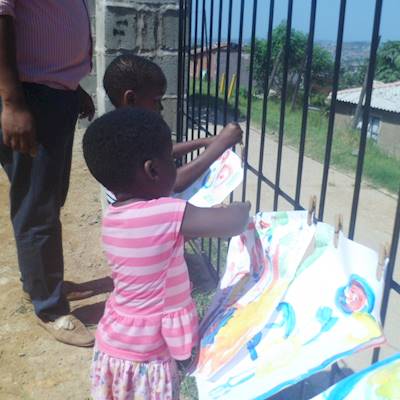Natal Early Learning Resource Unit (NELRU)

category
Education & Research
address
2nd Floor, 102 Woodford Grove, Windermere, Berea, 4001, South Africa
We help Disadvantaged pre-school teachers / pre-schools by providing training and setting up/equipping centres.
How can you help?

Help Natal Early Learning Resource Unit (NELRU) by food, unwanted clothing, blankets, games/toys, ...

Help Natal Early Learning Resource Unit (NELRU) by donating blankets and bottled water for ...
More about Natal Early Learning Resource Unit (NELRU)
NELRU (accredited with the ETDP.SETA) is an NGO/NPO organisation. NELRU works in under-privileged areas promoting pre-school education, providing centre-based training to teachers, upgrading crèches, setting up educational programmes, running lecture courses, workshops etc. It also acts as an upliftment and resource centre for the disadvantaged communities all over KwaZulu Natal. Worldwide research highlights the importance of quality Pre-School education during the first five years of life. This is the time that the foundation is laid for the child’s future Mental, Physical, and Emotional Development. The Early Childhood Development (ECD) sector relies on the service delivery of dedicated non-profit organisations and on corporate support for its programmes. As the first rung on the educational ladder, ECD programmes are the bedrock of the education system and without this foundational layer, at a developmentally critical time, children often don’t cope well with their formal school years. We do not receive any financial support whatsoever from the National Education Budget, resulting in the fact that in order to continue our activities in the pre-school field, we have to fundraise. NELRU (previously the Urban Foundation Pre-School Division) has been active since 1979 and to date hundreds of thousands of children have benefited from our training courses and in-service training of teachers. During the year NELRU offers a variety of courses/workshops, such as: • Orientation Teacher Training Course • NQF Level 4 / Grade R Teacher Training Course • Basic Educare Course • Story Telling Course(includes Literacy) • Administration Course • Mobile Library Course and monthly workshops • HIV/Aids Course • Baby and Toddler Course • Basic Educare Course Educational equipment, teaching aids, posters and general materials necessary for the learning experiences of the child are made during all our courses and workshops. An important and characteristic feature of our work is the intensive follow-up and in-situ upgrading services that we provide. Staff monitor and upgrade activities in the field. This is necessary so as to ensure that the skills gained during training are followed through at the Pre-School. We provide continuous in-service re-enforcement and guidance. This insitu upgrading component allows our trainers to work closely with community pre-schools in their own environment, thereby identifying and addressing a variety of problems particular to each situation and adapting our programme to suit the particular circumstances of each educare facility with which we work. We assist women who are not in pre-school centres but who are intent on setting up childminding situations. Training these women who have no other means of support is also a very important component of our work and assists in job creation. Challenges faced by our fieldworkers continue to be those of over-crowding in classrooms, lack of educational equipment, not enough trained staff at some ECD centres, etc. We do however endeavour to assist our students overcome these problems as best we can. We strive to increase the effectiveness of teachers in Educare Centres through comprehensive training programmes, provide teachers and principals with a total programme for curriculum, nutrition and management of pre-schools, provide a follow-up service to all project educare centres both present and past, to respond to identified needs and to facilitate access to resources according to the individual needs of Pre-Schools. Impact: Direct: We train approximately 130+ educare workers per year, and this impacts indirectly on about 4500 + children annually - with the new intake of children annually






